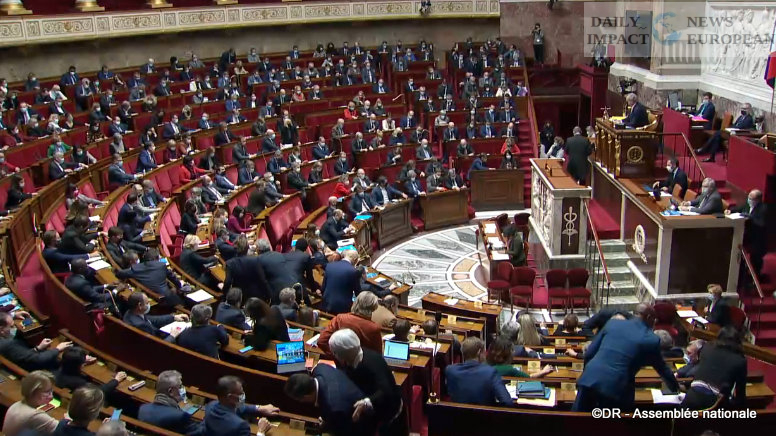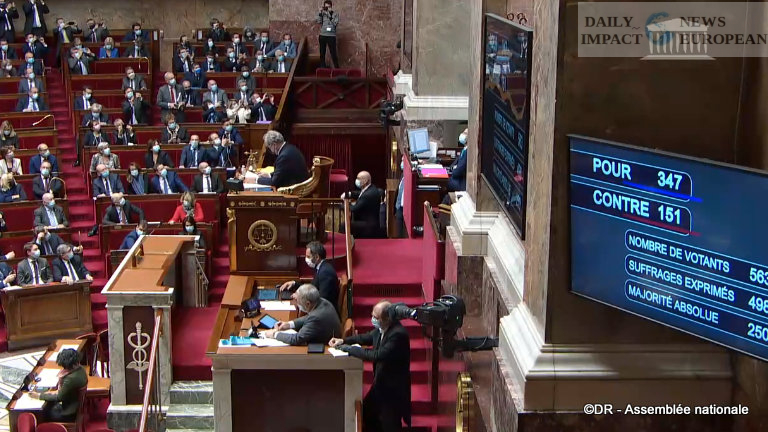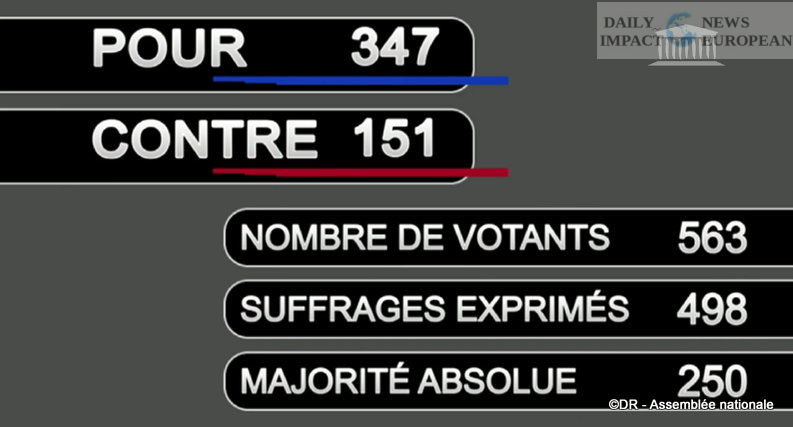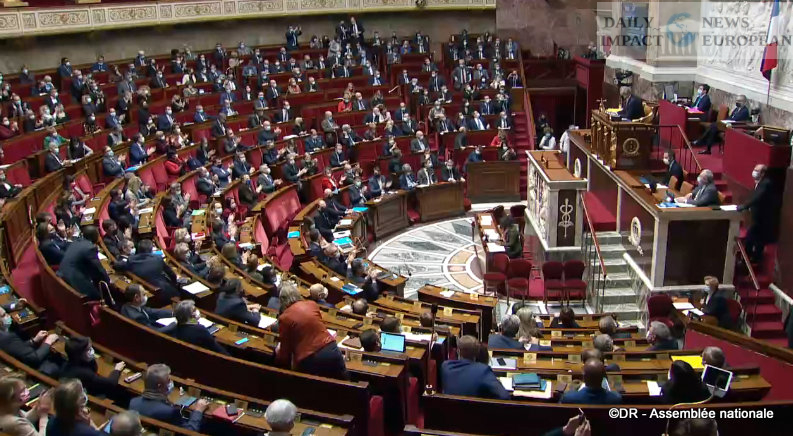The text that is not unanimous: the bill against Islamist “separatism”. It was finally adopted at first reading in the National Assembly on Tuesday. Among the measures: the neutrality of the public service or forced marriages.
Put to a vote in the National Assembly on Tuesday, the anti-separatism bill – now called the law strengthening respect for republican principles – arrives next month in the Senate. The senatorial right intends to go further and the left fears a caricature of debate serving the presidential aims of the leader of the right-wing majority, Bruno Retailleau.
The epilogue of two weeks of intense debate: MPs adopted at first reading the bill reinforcing Republican principles on Tuesday (February 16th). Adopted by 347 votes in favor, 151 against and 65 abstentions, the text was supported by the majority but considered too weak, or irrelevant, by the opposition. It will be examined by the Senate from March 30.
The bill contains no less than 70 articles and gave rise to 80 hours of debate and the adoption of 144 amendments. It contains measures on the neutrality of the public service, the fight against online hatred, the supervision of family education, but also the reinforced control of associations, better transparency of religions and their funding, or the fight against virginity certificates, polygamy or forced marriages.
Secularism versus Islamism: the material was highly flammable in a country still bereaved by recent jihadist attacks, including the one that led to the beheading of Professor Samuel Paty in the fall. Sunday, nearly two hundred people demonstrated in Paris against the bill accused of “reinforcing discrimination against Muslims”.
Rich with some 70 articles, it gave rise to 80 hours of debate in plenary sitting and the adoption of 144 amendments. It touches on several fundamental freedoms, such as those organizing education or associations, and alters the 1905 totemic law on the separation of churches and state.
Regarding article 21 on family education (IEF) – the measure most debated by deputies – the reform toughens the rules by moving from a declaration system to an authorization system at the start of the 2022 school year. may only be granted for reasons of health, disability, artistic or sports practice, family roaming, distance from the establishment, and also in the event of “the child’s specific situation motivating the educational project”. The text also strengthens the supervision of schools outside the contract, in particular by introducing an “administrative closure regime” in the event of “abuses”.
On online hate – added after Samuel Paty’s beheading in October – section 18 creates a new crime of endangering the life of others by disseminating privacy information “for the purpose of expose her or the members of her family to a direct risk of harm to person or property that the perpetrator could not ignore “. He will be punished with three years in prison and a fine of 45,000 euros.
Finally, on the subject of worship, while Muslim places of worship are, for historical reasons, in the majority under the association regime provided for by the law of 1901, the bill encourages them to register under the regime of 1905. , more transparent in accounting and financial terms. Foreign donations exceeding 10,000 euros will be subject to a declaration of resources.
Much more offensive in the debates, the LFI group, for its part, voted against and pounded a text of “stigmatization of Muslims”, generally irrelevant on secularism. “There is (…) a school and territorial separatism, but this text does not address it”, deplores Alexis Corbière.
The Communists, critics on the social side. “It is a text which says that we must respect the principles of the Republic”: difficult to vote against, notes their spokesperson Pierre Dharréville. But, adds Sébastien Jumel, it lacks “an arsenal to rearm the Republic on its social leg”.
By announcing future measures in favor of equal opportunities, the executive seems to have succeeded in defusing the reproaches of the left wing of the presidential party, which regrets the absence of a social component to this text promoted above all as of ” public order “.
Despite initial promises of divisions, the majority overwhelmingly sided with this text. There was no “disorder”, welcomed the leader of LRM deputies, Christophe Castaner. However, ten “marchers” abstained and one voted against, Mustapha Laabid.
At the RN, where it was intended to abstain, Marine Le Pen blasted a “political retreat”, criticizing the measures on home instruction. In her counter-project, the member for Pas-de-Calais notably called for banning “Islamist ideologies” and for banning “Islamist outfits” such as the veil in all public spaces, an old proposal by the RN.
After the adoption by the deputies in first reading this Tuesday afternoon in the National Assembly, it will be the turn of the Senate to examine this bill from March 30. This Sunday, nearly 200 people demonstrated in Paris against this text accused of “reinforcing discrimination against Muslims”.
The Law Committee has already started a series of hearings as part of the review of the bill, which is expected to be debated at the very end of March.




More Stories
METAL D’ALCOVE, the workshop of Eric KATZ, lighting sculptor in Montmartre
Paris Marathon 2024: Victory for Ethiopians at the Paris marathon
Gelsomina